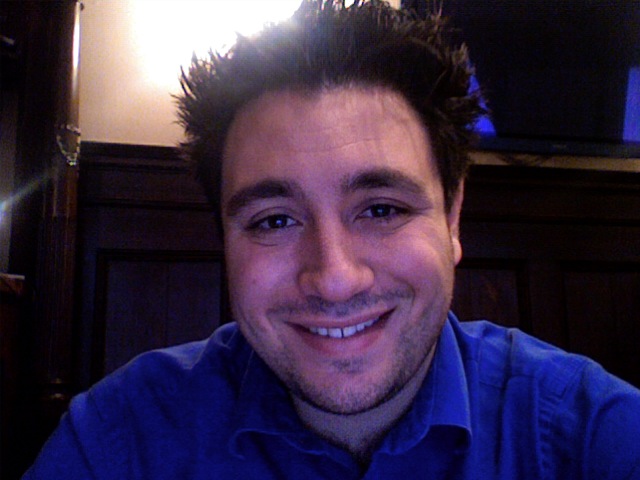
Chris Mustazza is interested in the intersection between poetry and technology. He is beginning a PhD in English Literature at the University of Pennsylvania, which will continue the work he began as a master's student at Penn, and he also serves as an IT director at the University. Chris' research interests include modern and contemporary American poetry, phonotextuality, sound studies, and digital poetics, interests he developed while serving as the first technical director of the PennSound project and Jacket2.
Most recently, he’s been working on a phonotextual theory based on the commonalities between performances of a poem, and researching the National Council of Teachers of English’s Contemporary Poetry Series, which ran from Columbia University in the 1930s and ’40s. As part of his work on the CPS, he has edited for PennSound collections of recordings by Vachel Lindsay, James Weldon Johnson, Harriet Monroe, and Gertrude Stein. His critical introduction to the Vachel Lindsay recordings was awarded the 2014 Sweeten Prize for best essay in American Literature in Penn's English Department. He's also written about the CPS in his article on the provenance of the earliest William Carlos Williams recordings. He is currently working on a master's thesis on the historical and aesthetic framing of the CPS.
Chris is most excited to be affiliated with the HiPSTAS project, a collaborative, interinstitutional project that examines the scholarship possibilities afforded by high-performance computing analyses of audio archives, in particular, the PennSound archive. He is also the editor of Clipping, Jacket2's serial commentary on experimental approaches to the analysis of poetry audio.
While at Penn, Chris is proud to have taught a writing seminar that focused on balancing privacy with its competing values (free speech, national security, etc.) vis-a-vis an increasingly connected world. He has also led a Kelly Writers House alumni book group on the topic. He is interested in topics around technology and culture: privacy, intellectual property, tech culture, etc.
Chris currently serves as the director of Student Technology and the director of Social Sciences Computing, and the Interim Director for Natural Science Computing, at the School of Arts and Sciences at Penn. Before that, he was the IT and multimedia manager for the Center for Programs in Contemporary Writing (CPCW), where he helped to evolve the technology used to create and disseminate recordings, including serving as the recording engineer for some of PennSound’s recordings.
